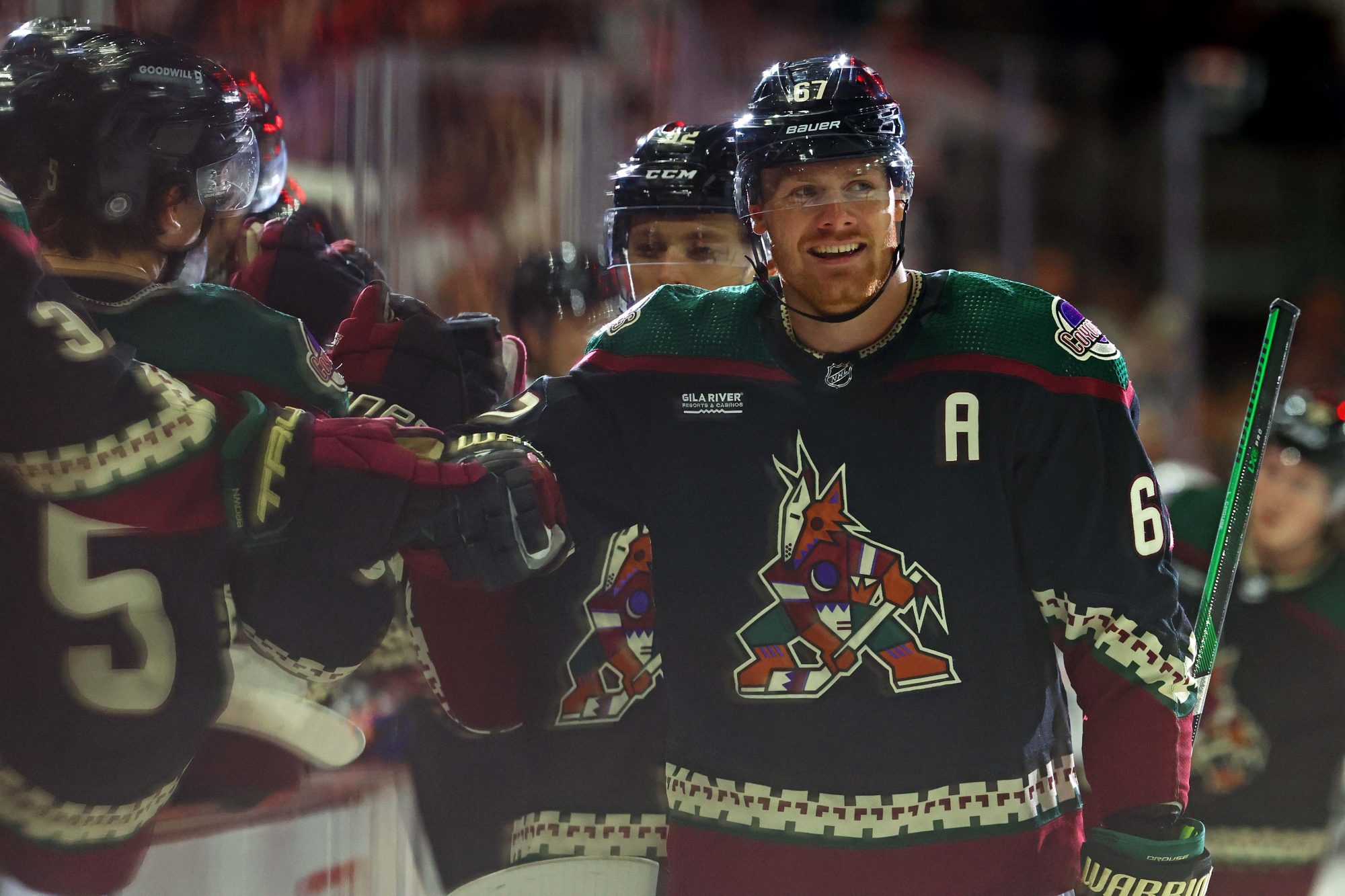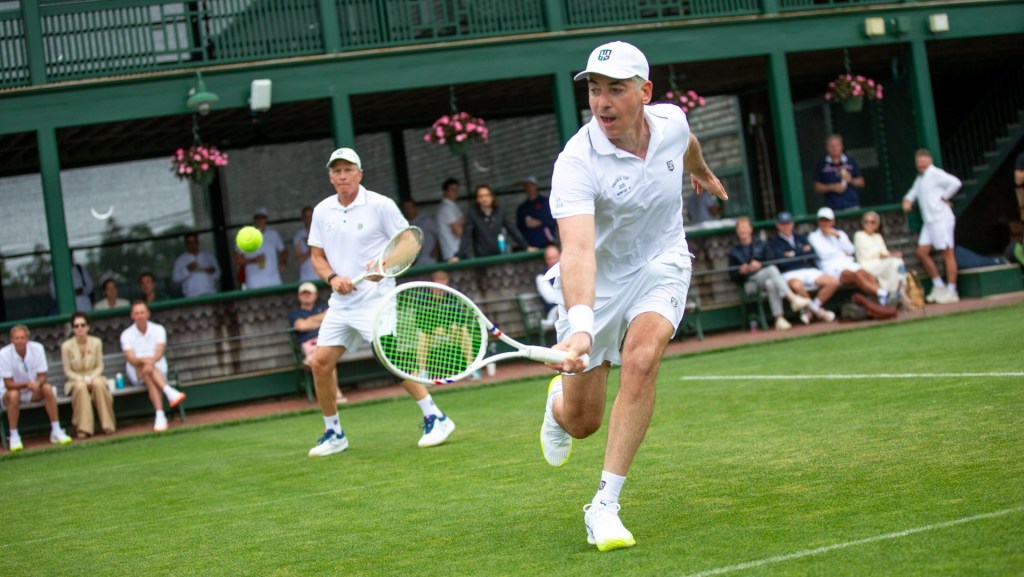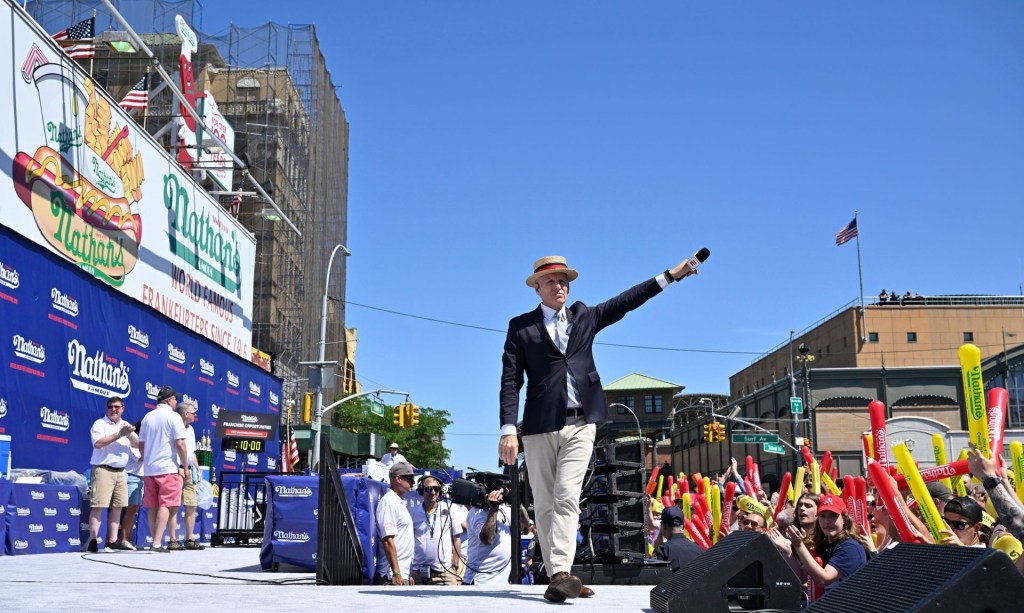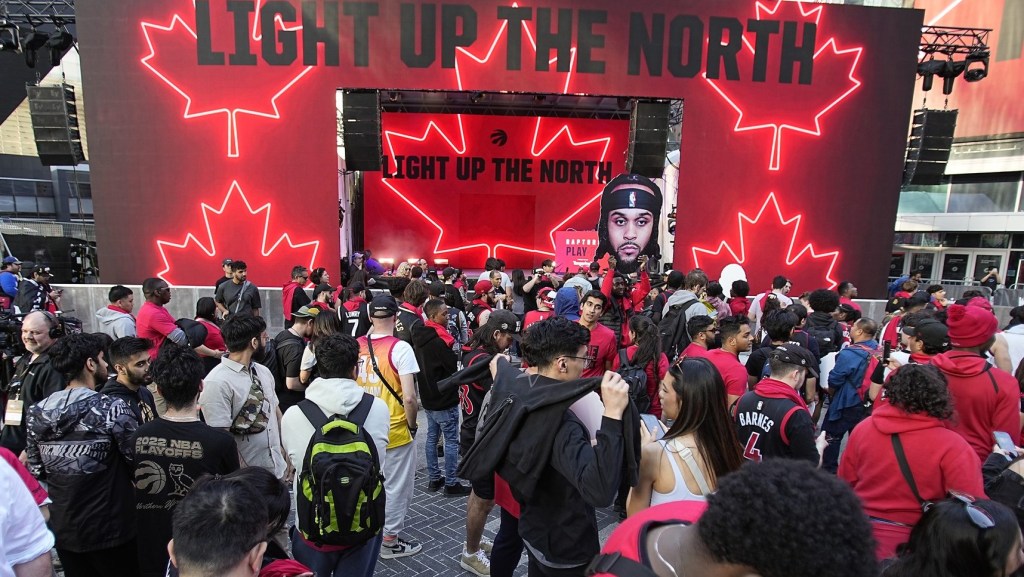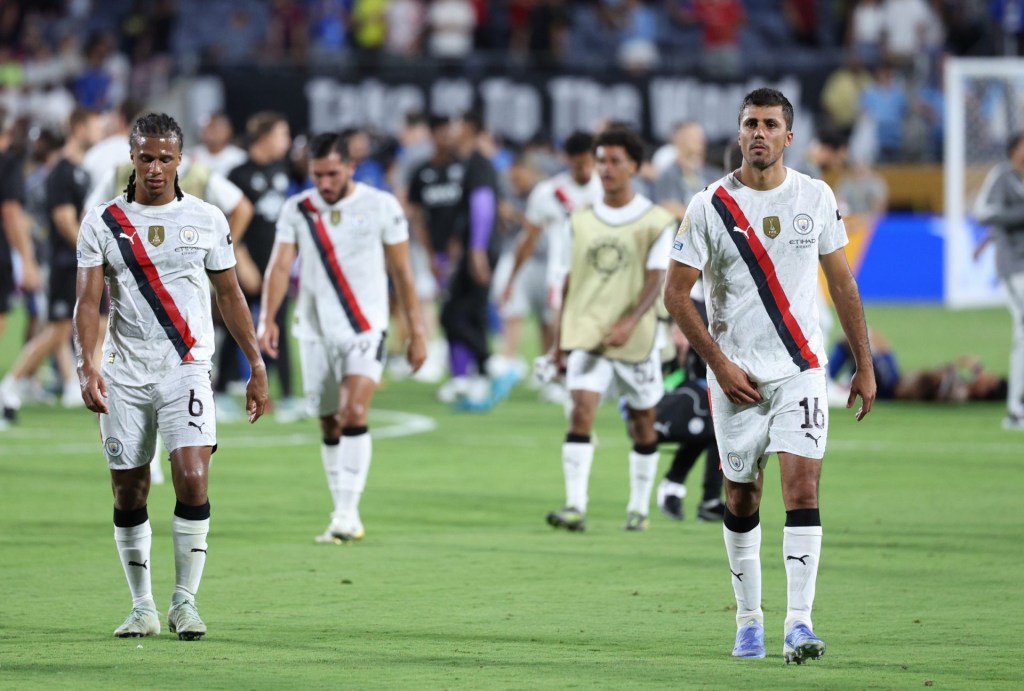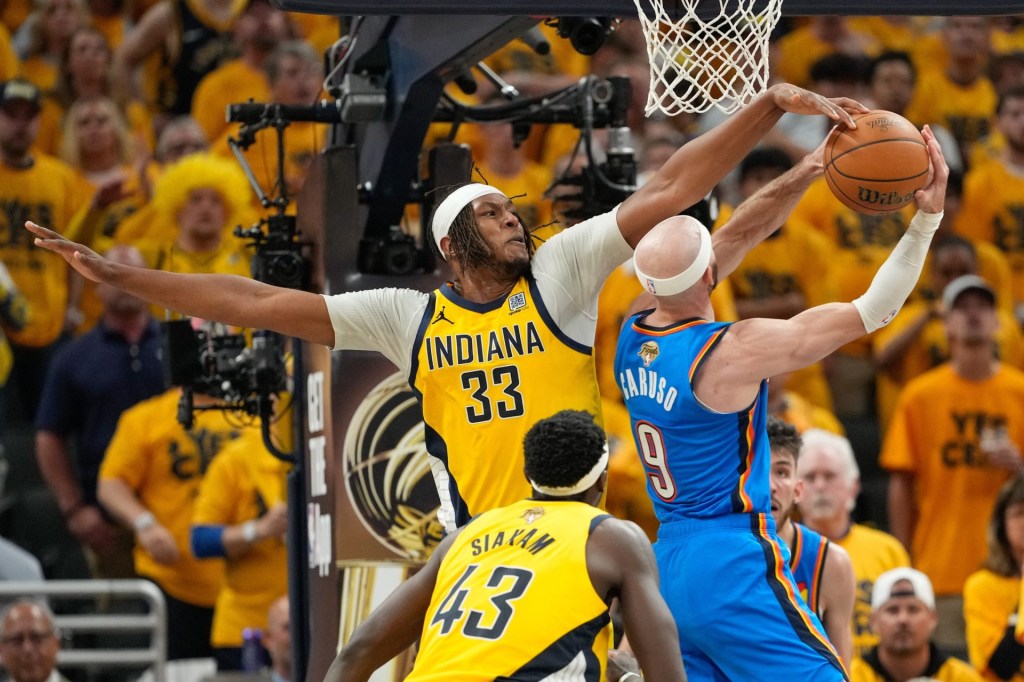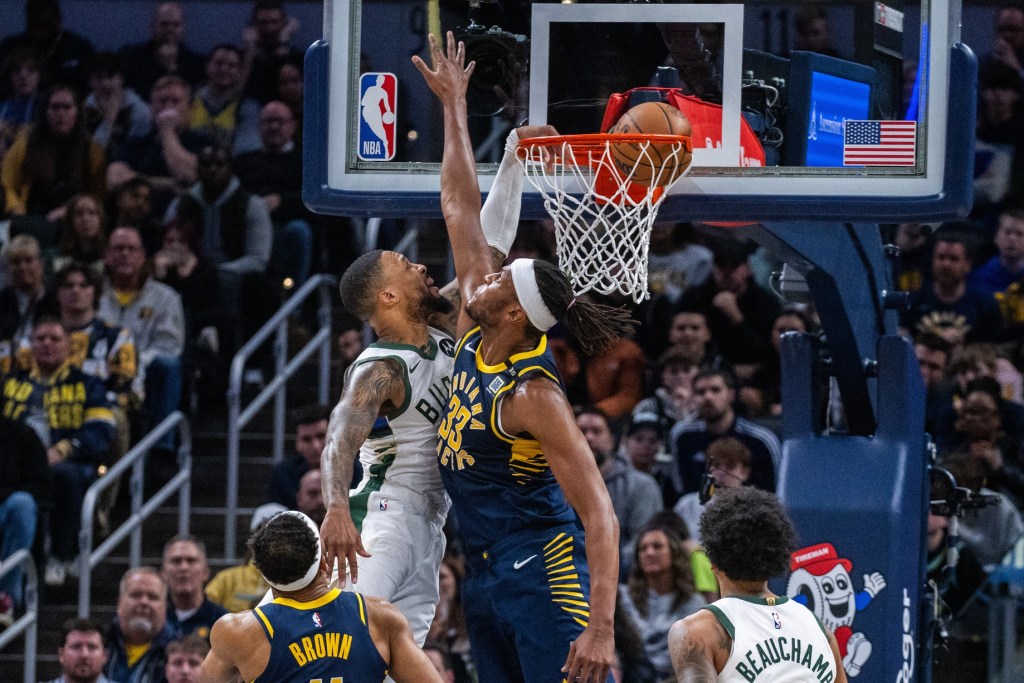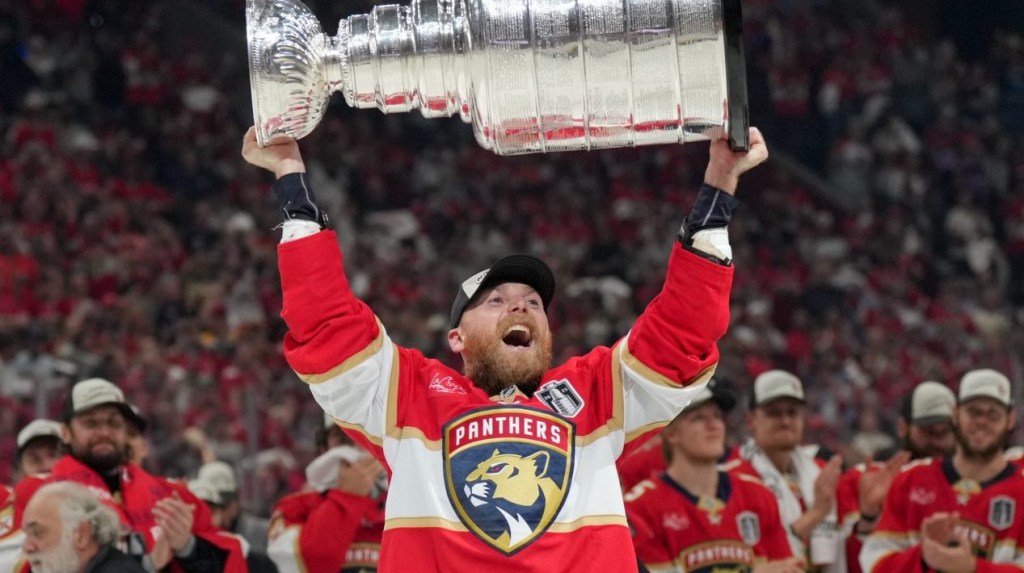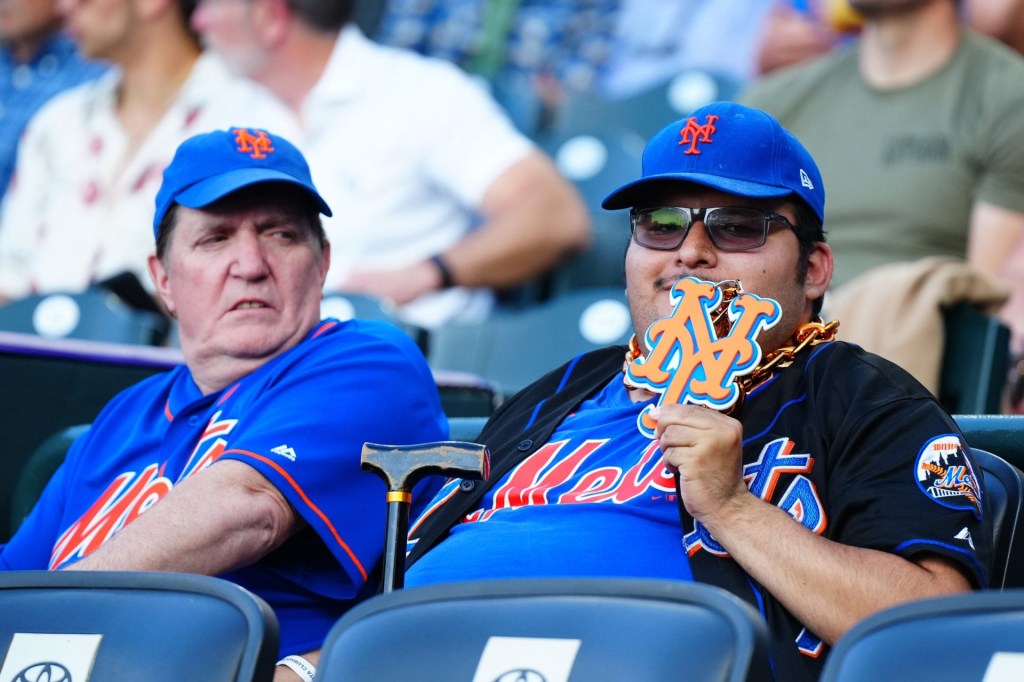The Arizona Coyotes aren’t dead. At least, that was the party line among those sitting atop the now deactivated franchise last month, as a deal to sell and relocate everything but the team’s name to Salt Lake City inched toward a conclusion.
The eventual $1.2 billion sale to Utah Jazz owner Ryan Smith put Coyotes owner Alex Meruelo on the clock. He now has five years to do what he’s been unable to do over the past five years: Build an NHL-suitable arena in the Phoenix area that would allow the franchise to restart as an expansion team.
“I am the only one that can get this project done,” Meruelo said during a Phoenix-area radio appearance April 18.
But there are serious doubts that Meruelo will be able to follow through on that promise, and there are several serious roadblocks before the NHL reenters a market that has seen far more tumult than success during the Coyotes’ 28-year run in the region.
Here’s everything you need to know about the end of the Coyotes, Version 1.0; the sudden move to Utah; and the prospects of ever seeing a Version 2.0 in the desert.
You just said the Coyotes left Arizona. They can return?
Almost everything but the name “Coyotes”—which Meruelo retained as part of a sale worked out by the NHL—is now owned by Smith, who has become a brash, quick-moving Mark Cuban–esque figure in Utah: He’s the majority owner of the Jazz since 2020, and he holds ownership stakes in MLS’s Real Salt Lake and the NWSL’s Utah Royals.
A subsidiary of his Smith Entertainment Group has trademarked at least nine names, presumably for the new hockey team, and there could be a fan vote to pick the winner—but during the 2024–25 season the team will just be known as “Utah,” a name that is more barebones than Washington Football Team. A full rebrand—from the team name to a logo and mascot—won’t come until the following offseason.
To restart the franchise using the name he retained, Meruelo will have to pay back the $1 billion he received in the sale. (The total sale was for $1.2 billion; the $200 million difference was dispersed among NHL owners.) But Front Office Sports previously reported that Meruelo netted only about $400 million when annual losses and debt were factored in.
The Coyotes declined to provide comment for this story.
This all sounds unusual. Has something like this ever happened in pro sports?
Sort of. The closest analogy would be the Cleveland Browns’ relocation to Baltimore before the 1996 NFL season. Then Browns owner Art Modell, who was in a financial bind and unable to get a new stadium built in Cleveland, had his mind made up to move to Maryland, but the NFL—pressured by Cleveland city leaders and Browns fans—worked out a deal to take over the Browns name.
“That was a last-minute negotiation,” says John A. Moag, who at the time was chairman of the Maryland Stadium Authority and helped negotiate the franchise’s relocation with then NFL commissioner Paul Tagliabue and his top lieutenant, Roger Goodell. “Modell was pressured to keep the name and colors in Cleveland. Once he did that, the deal was done.”
Fast-forward a few years, and the Browns restarted as an expansion franchise in 1999. Before the Ravens became the Ravens, Modell approached Indianapolis Colts owner Jim Irsay—whose father moved out of Baltimore under the cover of darkness in ’84—about resurrecting the Colts name in Baltimore.
“That didn’t work out,” Moag says. “It would have been nice to have the Colts name, but it was all fine by the end.”
While the Coyotes name could return in Phoenix, just as the Browns name did in Cleveland, NHL deputy commissioner Bill Daly tells FOS that there wasn’t a model they were trying to replicate.
“I’m not sure that the contemplated series of transactions has ever been executed in any other professional sports league before,” Daly says. “But the structure we developed came closest to meeting our short-term needs.”
O.K., go back a bit. Take me through the Coyotes’ arena saga. How did we even get here?
The Coyotes spent seven-plus seasons at Footprint Arena, home of the Phoenix Suns. It was the smallest NHL arena when the team departed for a new home in Glendale during the 2003–04 season.
But far from the region’s main population center, Glendale proved to be a trek for most fans and contributed to an unstable ownership situation that led trucking tycoon Jerry Moyes to place the Coyotes in bankruptcy in 2009. The NHL ultimately ran the team for four seasons before new ownership took over, but unpaid bills led to more strife between city leaders and the team. Meruelo inherited that mess in ’19, buying the team for $300 million, and when he was unwilling to agree on a long-term lease, Glendale voted in ’21 to terminate its operating agreement with the Coyotes.
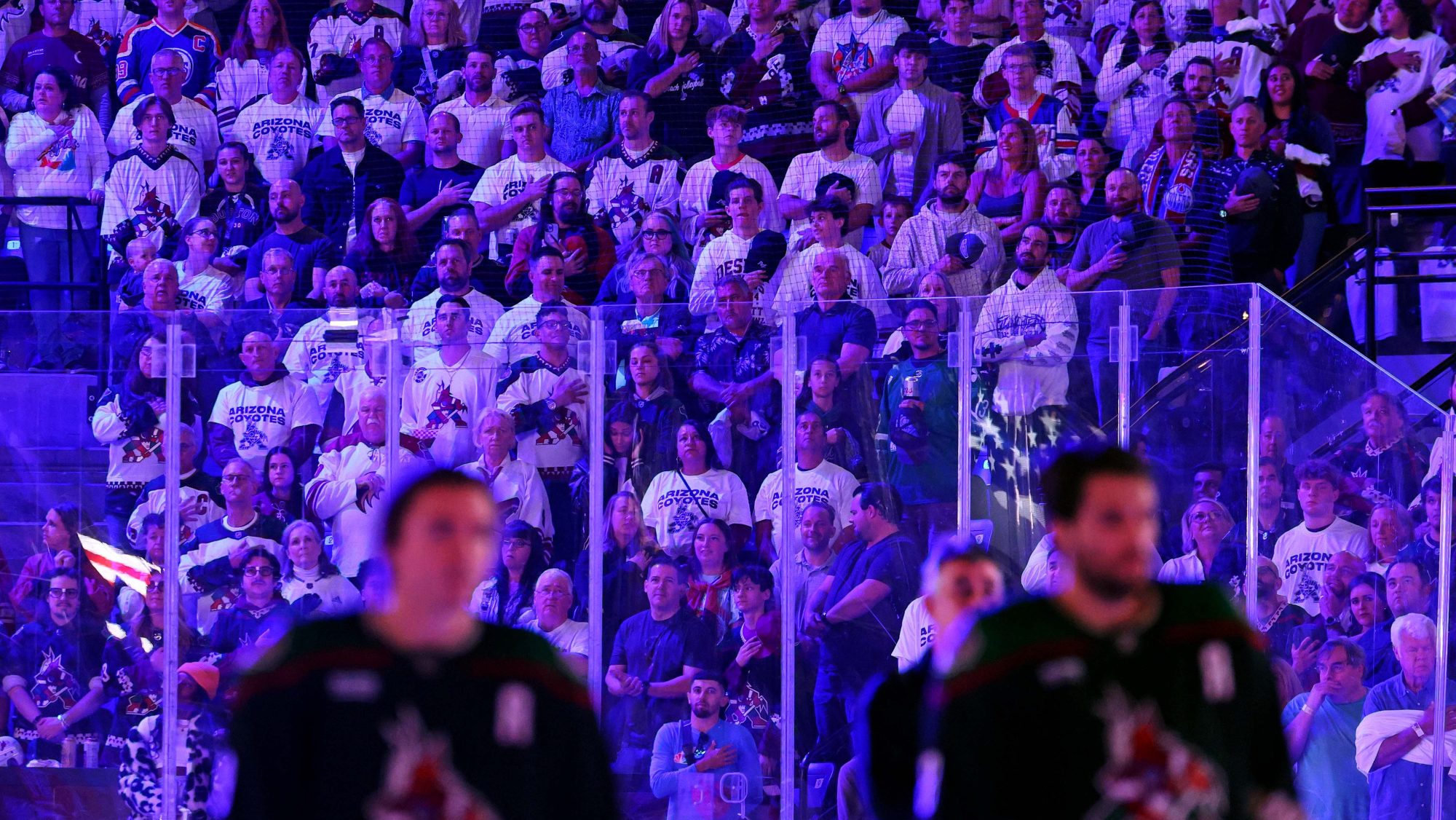
With Glendale out and Footprint Center no longer a viable option, the Coyotes relocated to the new, 5,000-seat Mullett Arena on the Arizona State campus. The Coyotes were back to having the smallest arena in the league, this time with 10,000-odd fewer seats than No. 2 on that list, the Winnipeg Jets’ Canada Life Centre.
The Coyotes ultimately built a multimillion-dollar annex to add some NHL amenities, and some elements of team revenue actually improved, but there was no escaping the facts: This was a temporary solution. With voters failing to approve a new arena development in Tempe last May and the inability to solidify a plan for a new arena site, the Coyotes were looking at playing at least three more seasons at Mullett Arena before anything changed.
Why didn’t the arena votes go the Coyotes’ way?
When they were announced, the three ballot propositions in Tempe seemed to have enough support to pass. The $2.1 billion proposal—which included a 16,000-seat arena—was almost entirely privately funded, minus $220 million in Tempe-backed bonds to remediate the 46-acre former landfill site.
The Coyotes and many Tempe city leaders pushed voters to vote “yes” on the three propositions: 301 (changing the city’s general plan so the land can be used for an arena and entertainment district), 302 (the rezoning of the property), and 303 (giving the Coyotes the right to develop the property).
But the Coyotes’ “yes” side soon found itself losing public support as opponents—via signage and mailers—got their message out to Tempe voters quicker and more regularly. Unions spent nearly $500,000 on the “no” campaign, an amount seemingly dwarfed by the $7 million Meruelo claims was committed to getting the measures passed.
“I personally went door-to-door knocking on over a thousand doors over a 30-day period,” Meruelo said alongside NHL commissioner Gary Bettman at an April 19 news conference. “Not only did I [canvas], my family did that [and] all the executive team did that. We were face-to-face with everybody. I did everything I possibly, humanly could do … to win.”
But there are reasons to doubt how much Meruelo spent to get those ballot measures passed and how hands-on he was in the weeks before the May 16, 2023, election. According to public records, the Meruelo-backed Tempe Wins PAC spent only $1.1 million—something Tempe councilman Randy Keating called out on X the same day as that news conference.
“He overpromised and underdelivered on the referendums,” Keating tells FOS. “I didn’t see him at all. I only talked to him once. I saw [Coyotes president] Xavier [Gutierrez] a lot more. As far as visibility goes, he really wasn’t part of the campaign.”
None of the three ballot measures received more than 44% of the vote, and pressure from NHL owners and the NHL Players’ Association on Bettman began to mount.
So what’s Meruelo’s plan for a new home now?
The first step is winning an auction for 100-odd acres of undeveloped land in northern Phoenix. The Arizona State Land Department will hold that auction June 27 for acreage that’s been appraised at roughly $68 million.
But that is a baby step. Meruelo would then have to secure necessary approvals to start developing that land to build an arena—and he would likely have to finance that himself, unless he takes on partners. There is almost zero appetite to make public funds available for the project.
“I don’t think there’s a lot of faith he can get it done based on all the missteps over the last nearly five years,” says Craig Morgan, a senior writer and host at PHNX Sports who has covered the Coyotes since they relocated from Winnipeg in 1996. “In terms of public opinion of Alex Meruelo Sr. and [his son] Alex Meruelo Jr., it’s very low. Most of the fans don’t have faith in them doing it or want them to do it at this point.”
But Meruelo Sr. still has support from the NHL.
“Alex Meruelo and his team continue to remain optimistic on his ability to achieve what will be necessary to achieve in order to succeed,” Daly says. “Time will obviously tell, but we are certainly hopeful that Mr. Meruelo will be successful.”
Wait. Meruelo’s son is involved in the team?
Months after graduating from USC, Alex Meruelo Jr. was slotted in to the Coyotes’ front office when his father bought the team in 2019. Alex Jr. has been the Coyotes’ chief brand officer since ’21, and he had access to the team’s official X account, two sources with knowledge of the situation tell FOS.
That’s relevant because, those sources say, it was Alex Jr. who was behind a now deleted X post April 10 that read, “Committed to keeping Coyotes Hockey in the desert & building an arena in Phoenix.” That post, which included a sizzle reel of hockey action and derided “the detractors,” drew broad criticism from fans who knew they were watching their hockey team slip away. The team’s relocation became official seven days later.
Alex Meruelo Jr. was a more constant presence around the team office than his father in recent years, including last year’s failed referendums in Tempe.
“That guy was a [expletive] disaster,” a source who worked on the referendum campaign tells FOS.
Another source says Alex Meruelo Jr. didn’t “grow into the job,” and there were questions among team employees about what he actually did.
Were there any other options for relocation besides Salt Lake City?
Smith was motivated, and he had the money and arena for the team to call home, even if only about 12,000 seats at Delta Center will have an unobstructed view of the ice. The only thing working against Salt Lake City was the market size. Phoenix has the 12th-largest television market in the U.S., while Salt Lake City is ranked 34th.
And the NHL did explore at least one other option in Phoenix, a source tells FOS. The league had informal discussions with Phoenix Suns representatives about purchasing the Coyotes for around $1 billion, but those talks didn’t go anywhere. Smith, ultimately, was the only one willing to pay more than twice what the Coyotes were valued by Forbes, and it would have cost between $200 million and $300 million to make the Suns’ Footprint Center hospitable to hockey again.
So, if Meruelo fails over the next five years, what are the chances of the NHL returning to the Phoenix area?
The NHL wants to return any way it can. There are just two nonnegotiables: There must be a workable arena and an ownership group committed to making hockey thrive in the desert five years or more from now. Only Meruelo can restart the Coyotes within five years, and he can’t transfer those rights, Daly says.
“The greater Phoenix area is definitely a prime hockey market,” says former Coyotes CMO and current Arizona State business professor John Pierce. “There are hundreds of thousands of hockey fans here. There’s certainly enough disposable income to support a team from a consumer base, from a sponsorship base, and from a corporate hospitality base.”
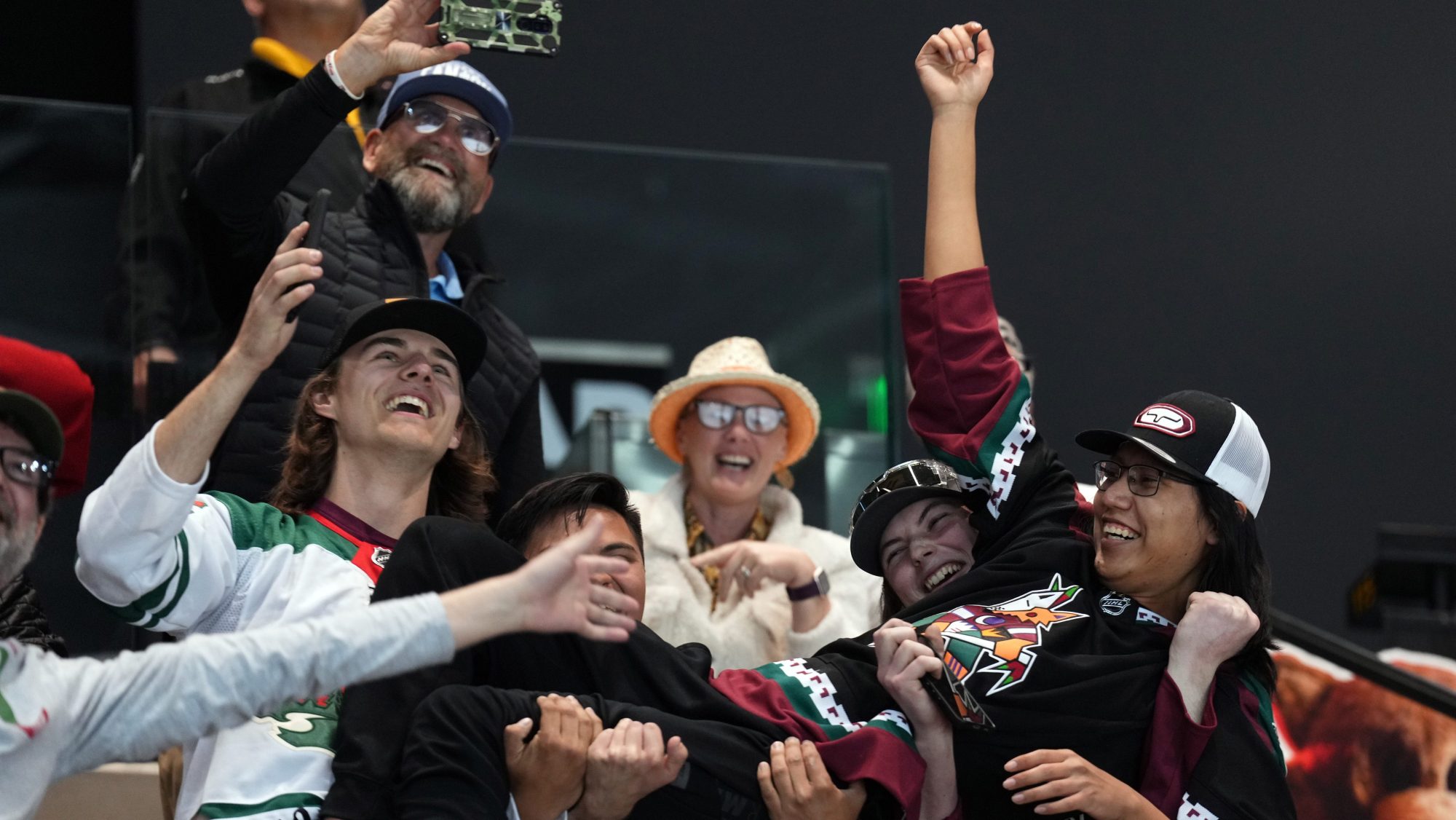
That’s something former Arizona Republic columnist Paola Boivin says is often dismissed outside Phoenix.
“I think while some outsiders look at Phoenix and say, ‘It can never be a hockey town,’ I just don’t think [area residents] had the opportunity to really be fans,” says Boivin, a journalism professor at Arizona State. “What’s working in Arizona’s favor for the future is that Bettman does not want to fail. He was a strong believer in hockey in the desert. So I think he’s going to keep trying to help this issue along.”
Adds Pierce: “I can’t think of a professional sports fan base that’s been through the wringer more than this fan base. What is needed moving forward is for owners and executives to stop talking about it. Nobody should make any promises until something is actually done.”
Front Office Sports’ Eric Fisher contributed to this report.
